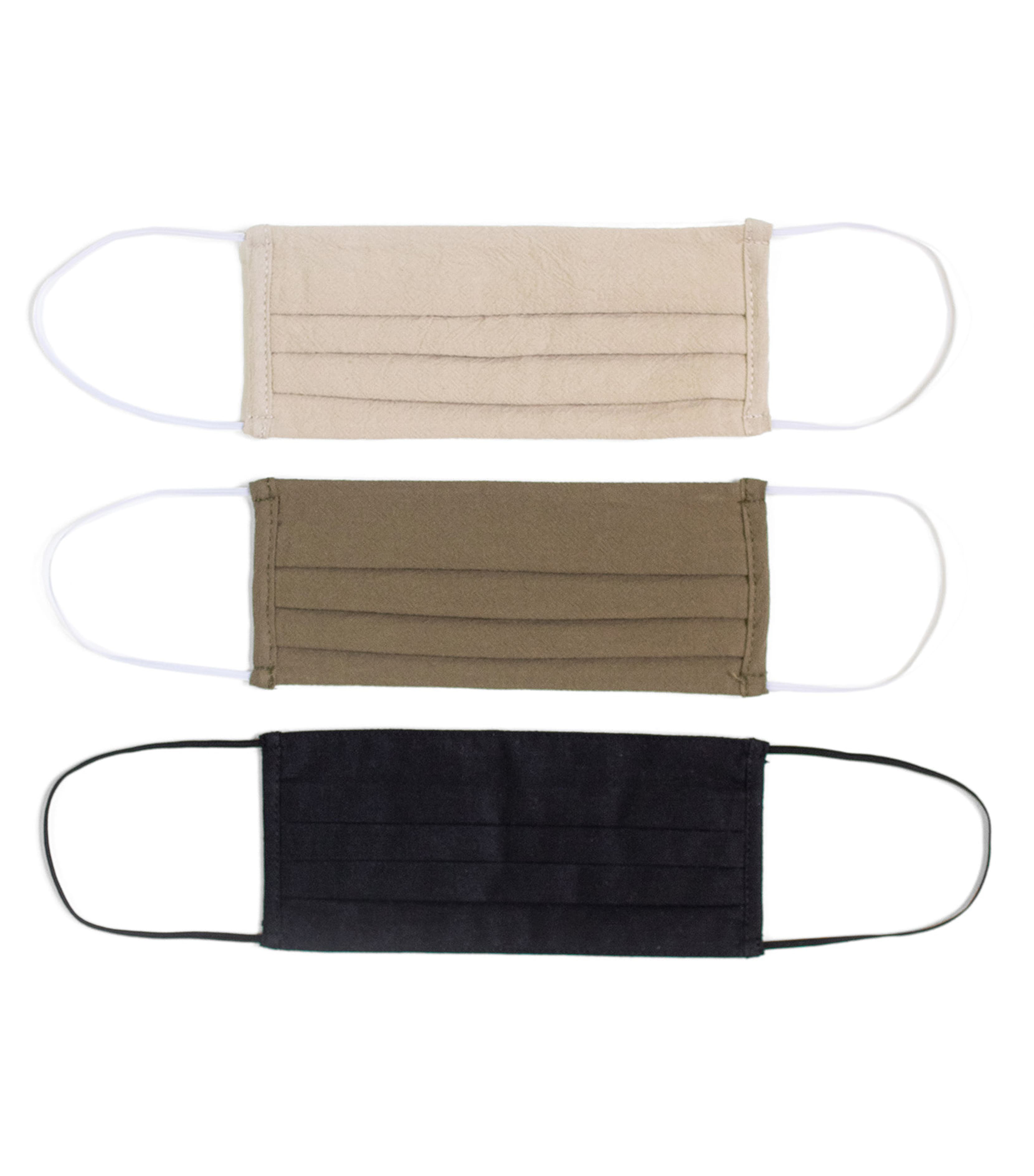13 Tips for Dealing With Other People Right Now

During these past few months, you've probably felt on edge. I know I have. How can we not be experiencing moments where we've been worried, hopeless, angry, depressed, anxious, sad, etc. This entire year has been a rollercoaster of emotions for all of us, and that's not an overgeneralization.
And when everyone is feeling all the feelings at once, well, it can lead to some tense, awkward, and uncomfortable interactions. Add to that the fact that not everyone is on the same page when it comes to social distancing and mask wearing. Dealing with others (friends, family, strangers) can be stressful, even if you're not leaving your home.

Maybe you've seen or read about people getting into fights about mask wearing and/or social distancing, some turning violent. You might have even experienced some tension with strangers or found yourself in similar situations. And chances are you've had to have some awkward or tough conversations with friends and family who have different rules or boundaries.
While we're not here to tell you how to live your life regarding your own personal boundaries and limits during this pandemic, we can help you navigate interacting with others right now so that you can, hopefully, keep your existing relationships healthy and avoid any ugly confrontations with strangers. To be clear, though, the CDC recommends wearing masks that cover your nose and mouth in public settings and keeping six feet away from people not in your household in both indoor and outdoor places. So keep that in mind.
But, on the topic of interacting with others during this especially fraught time, experts shared their tips with us. These are general pieces of advice, so they might not work for every single situation. But they're a good place to start. Let's begin, shall we?
1. Figure Out Your Boundaries

It seems a bit weird since this task requires some introspection, and we're talking about interacting with others. But the first place to start is to figure out what your own boundaries are. What are you comfortable with? Who are you willing to see and in what capacity? What are your nonnegotiables? "Getting someone to respect your boundaries starts with setting clear boundaries," says Sage Grazer, LCSW, co-founder and chief clinical officer of Frame. "First, you need to understand your own boundaries and comfort level before you can assertively convey that to someone else."
2. Assert Your Boundaries

Once you figure out step one, then it's easier to be confident in how you enforce those boundaries and rules. Plus, it can help you deal with those moments when people aren't being respectful of your wishes. "It's important to remind friends and family how it makes you feel when they violate your boundary," Grazer says. "Some people may not understand the reasons why you set certain boundaries, and it's not your responsibility to explain yourself, but you can assert how it makes you feel and that it is important to you to feel safe and respected. We cannot genuinely engage in social connection when we do not feel safe."
3. Be Mindful of Others' Boundaries

It's a two-way street, right? If you want someone to respect you, you'll have to respect them. Yes, even when it's tough. And maybe, you're not sure how that other person feels, so don't be afraid to ask them. This can be helpful especially before you meet up with someone. "[Their boundaries] may be more cautious than you'd like, and that's okay. If it is the opposite and you are not feeling safe, you have the right to express your concerns and make your voice heard," explains Nina Vasan, MD, clinical assistant professor of psychiatry at Stanford University School of Medicine and chief medical officer of Real. "Be proactive and specific with what you are comfortable with. Remember that everyone is coming from a different perspective, and both yours and theirs are valid and need to be respected."
4. Talk It Out

While discussing the game plan before you meet up with someone is key, Vasan also says frequent and open communication can be very important. Continue to talk to your friends and family to learn more about their perspectives and limits, even if you aren't planning on seeing them anytime soon.
5. Be Mindful of the Situations You Put Yourself In

While you can't predict everything, you might have an idea of what to expect in some situations or environments. "The reality is that some disagreements or confrontations may be unavoidable, so it's less about trying to 'avoid' and more about learning how to safely handle confrontations," Grazer says. "Being mindful about the situations that you put yourself in, and remaining thoughtful of your own responses and reactions can be helpful to decrease escalation of conflict."
6. Keep Your Composure

Grazer acknowledges that it can be tough to stay calm in stressful situations because when we feel threatened, our primitive brain is activated as a survival instinct. You could end up making a rash decision if you're not careful. "Our fight, flight, or freeze response can override our rational thinking brain (prefrontal cortex), which impacts our capacity for thoughtful decision-making and good judgment," she explains. "Remaining calm in stressful situations may involve increasing your awareness of your own triggers as well as being mindful of your internal responses to external stimuli/stressors."
Some mindfulness practices can work here, suggests Talkspace therapist Rachel O'Neill, PhD, LPCC-S. That includes allowing yourself to feel your feelings and taking a step back if you need to.
7. Remove Yourself From the Situation

If you find yourself in a situation where you feel uncomfortable, Myka Meier, etiquette expert, author, and founder of Beaumont Etiquette, advises removing yourself from it if you can. "If that doesn't work and you have to say something, just remember to stay respectful when you communicate what you need to," she adds.
8. Don't Escalate a Confrontation

This goes hand in hand with what we just learned about walking away and maintaining your composure. "Give people their space. If someone starts to escalate, stay calm and keep your voice level," Vasan says. "Be quick to apologize. Now is not the time to let ego or pride get in the way, even if you were not at fault."
9. Be Kind and Compassionate

It helps to understand where the other person is coming from. Vasan says it's good to remember that everyone is currently in a state of heightened stress. "This means that many of us have increased cortisol running through our bodies, making us hyperresponsive to stimuli and perceived threats," she explains. "When you have a negative reaction to someone else's response, first try to be kind and compassionate by remembering the stress they, too, are experiencing right now. This person might have more going on than meets the eye: Maybe they were just furloughed, maybe they can't pay rent this month, or maybe they are currently living with an elderly parent and trying to be extra cautious about exposure."
10. Understand You Might Not Be Able to Convince Everyone

I know a lot of us out there like to prove a point, myself included. But it's important to realize that not everyone is going to agree with you, no matter how compelling your argument is. "Try to work on focusing on what you can control, and that's often your reaction to these difficult situations," O'Neill advises.
11. Avoid Certain Language

In a tense environment, things can easily be misunderstood. "In general, avoid language that assumes absolutes (things like, 'always,' 'never') and try to avoid blaming language ('You made me feel')," O'Neill says. "Instead, take ownership over your feelings and use 'I' statements to express what it is you want the other person to know." You'll also want to avoid any language that is negative or threatening, Vasan adds.
12. Think About Body Language

Body language is so crucial right now, especially since it might be harder to communicate while wearing a mask. "It is said that the eyes are the window to the soul—your eyes say a lot. Test it out: Stand in front of a mirror wearing a mask and look to see what you see as you move your face to convey fear, happiness, or sadness," Vasan suggests. "Hand gestures and body language are similarly powerful forces, so use your body language, but be extra mindful, as certain hand gestures may be received as threatening."
13. Be Clear and Straightforward

When people are wearing masks, things can get lost in translation because sounds get muffled and we can't see facial expressions. O'Neill suggests being open and honest about this barrier by saying something like, "You can't see it, but I'm smiling when I say this." It can help ease the tension and acknowledges the uniqueness, newness, and awkwardness of the situation. "Next, I think it's also helpful to try to be as clear and straightforward as possible in what you're trying to communicate," she says. "Think about some of the tools that you use via email or text—like avoiding sarcasm—and try to avoid those same practices in conversations that include a face mask."
This article is provided for informational purposes only and is not intended to be used in the place of advice of your physician or other medical professionals. You should always consult with your doctor or healthcare provider first with any health-related questions.
Sarah is lifestyle writer and editor with over 10 years of experience covering health and wellness, interior design, food, beauty, and tech. Born and raised in Los Angeles, she attended New York University and lived in New York for 12 years before returning to L.A. in 2019. In addition to her work at Who What Wear, she held editor roles at Apartment Therapy, Real Simple, House Beautiful, Elle Decor, and The Bump (sister site of The Knot). She has a passion for health and wellness, but she especially loves writing about mental health. Her self-care routine consists of five things: a good workout, “me” time on the regular, an intriguing book/podcast/playlist to unwind after a long day, naps, and decorating her home.




